On the Graduate Showcase you'll find a collection of work by students innovating and pushing their process. Here, we pause on three projects from that collection that rethink waste.
It’s hard to find a project more devoted to the power of process than Rūta Irbīte’s Unburden. The graduating MA Material Futures designer explores the life and death of her belongings.
The project began with the designer’s shock at the number of things one person can accumulate throughout a lifetime. In 2020, the mass of all human-produced materials had grown to equal the mass of all life on the planet, explains Rūta. In nature, there is no waste because everything becomes food for something else and in that system, fungi is one of the great recyclers of matter. “without fungi’s ability to break down nature’s toughest materials like lignin and cellulose, that are the components of wood, we would all be drowning in dead plant matter,” says Rūta.
Rūta Irbīte
Unburden
Unmaking and shredding her belongings, she set about introducing fungi to each material. Fungi are extraordinary organisms that can adapt to their surrounding by changing their DNA, so it can alter itself to be able to digest plastic. Rūta asks if we should unburden ourselves by demanding fungi change their DNA or simply change our behaviour that is creating the problem in the first place.
The power of fungi, specifically mycelium, is also explored in Lars Dittrich’s work. Graduating from MA Material Futures, Lars has created a process for sculpting with a living organism. The growth of mycelium mimics airflow so Lars combined an airflow tool with a modular growth chamber that controls humidity, CO2 and temperature. This means he can influence the material to grow into a particular shape without using a mould.
-
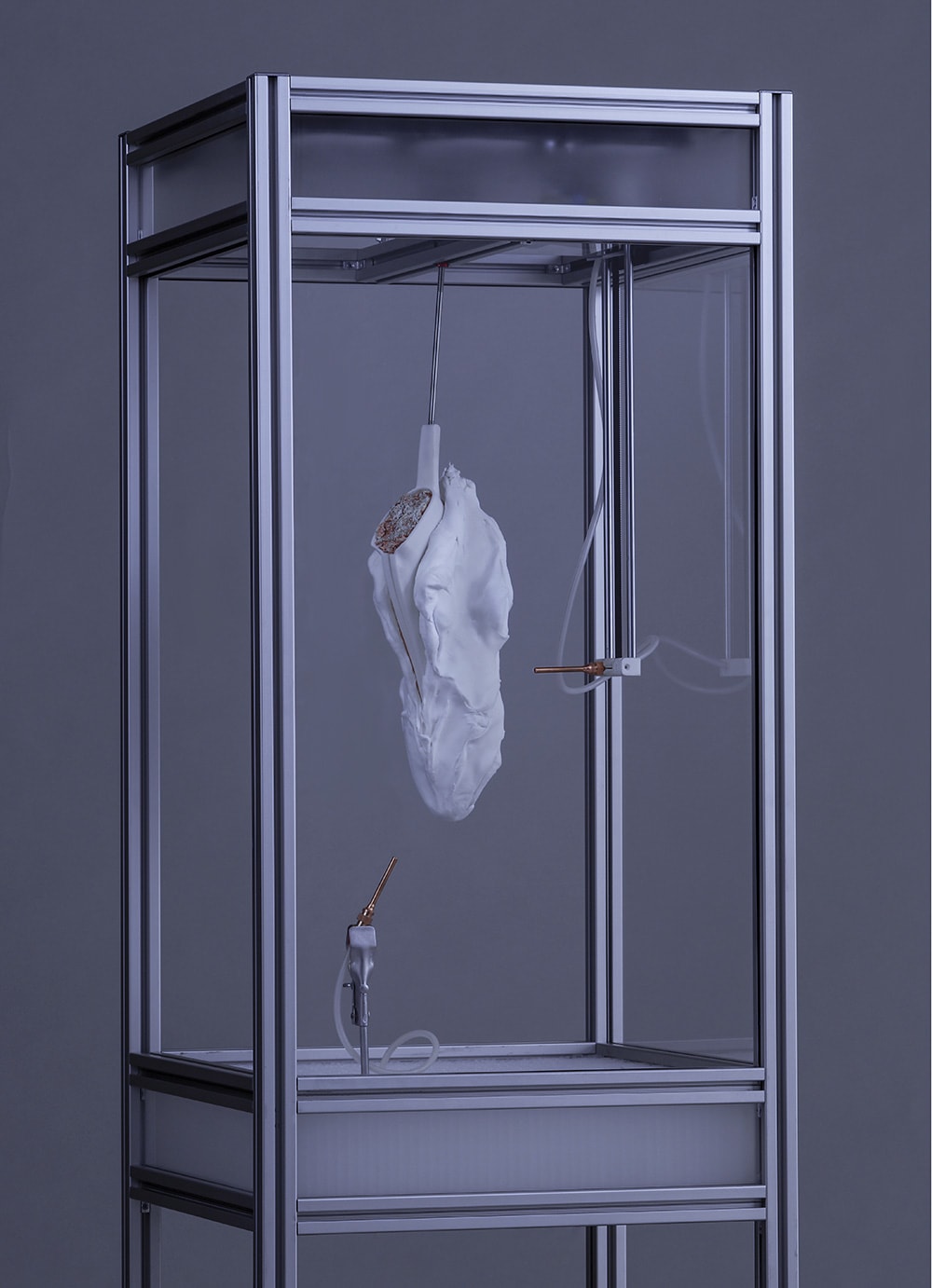
Lars Dittrich, MA Material Futures
-
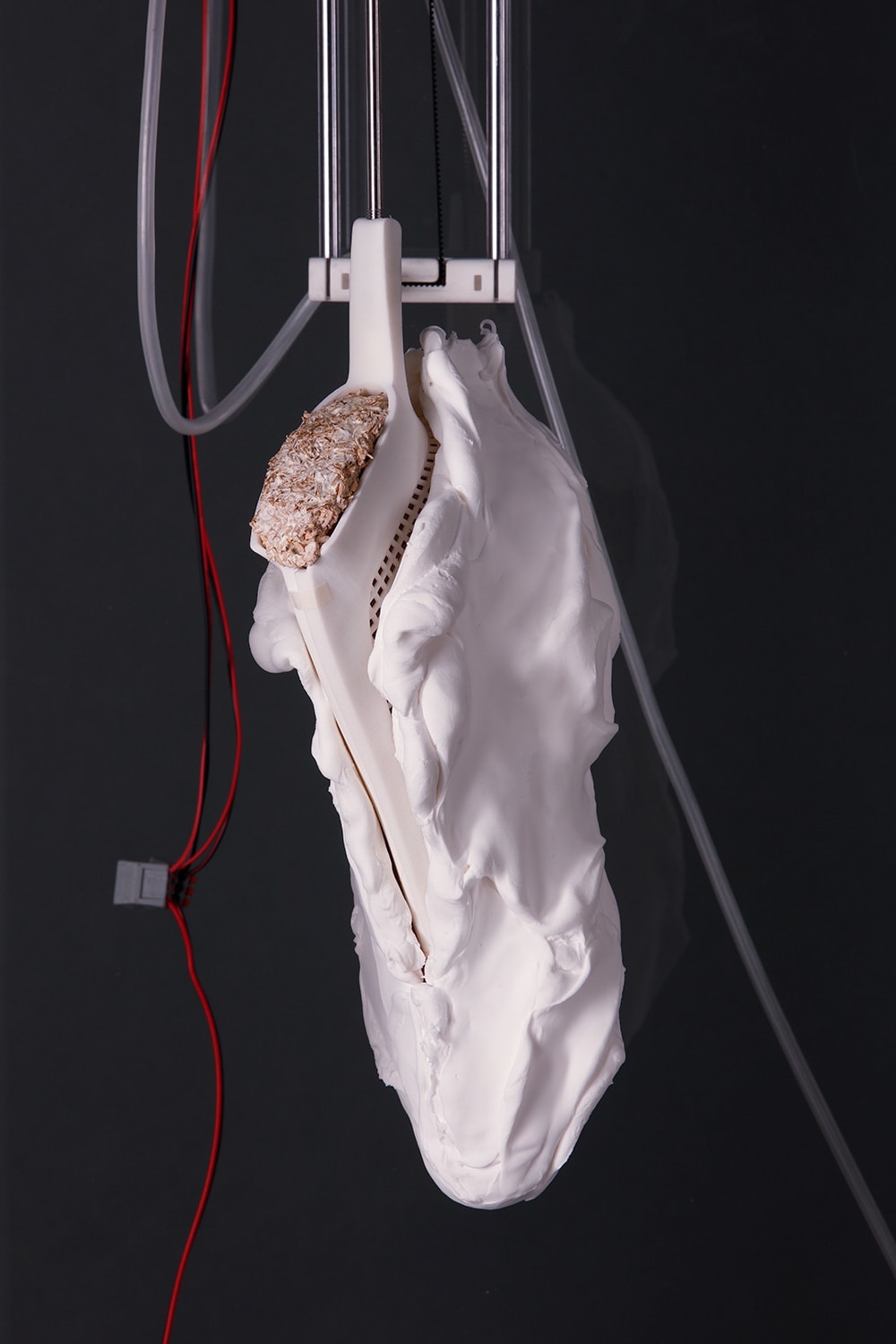
Lars Dittrich, MA Material Futures
-
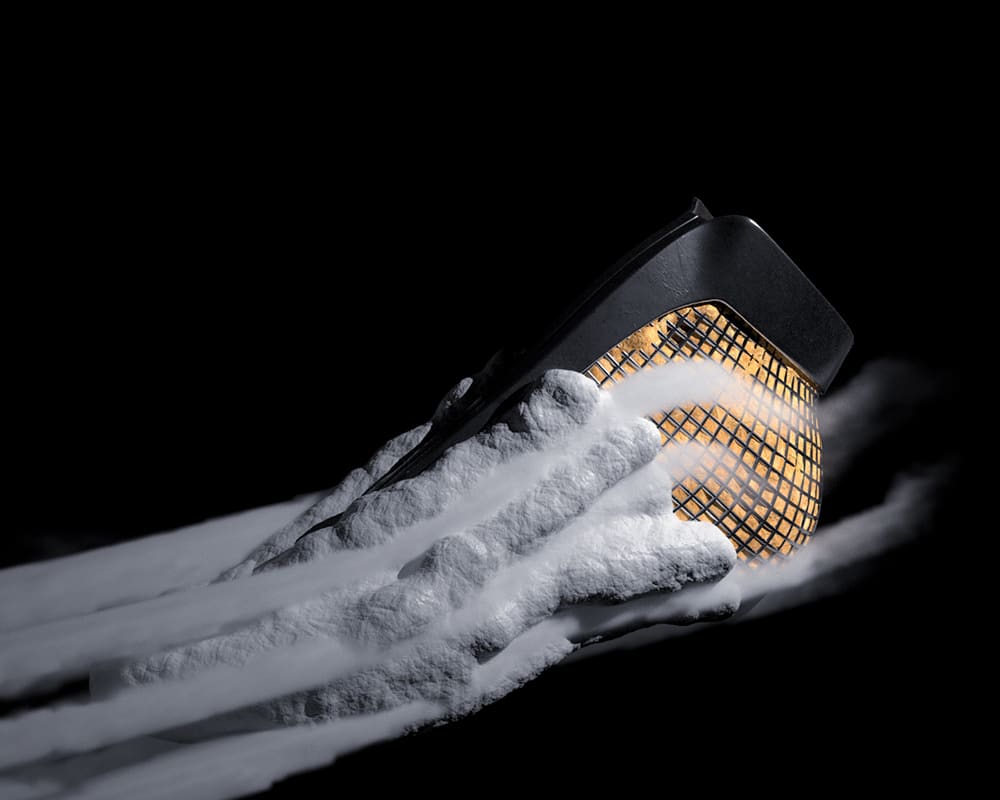
Lars Dittrich, MA Material Futures
The initial proposal demonstrates how this could be used for foams in footwear, replacing petrol-based materials with regenerative ones fed on agricultural waste like corn husks or hemp.
Lars Dittrich
Sculpting with Air
Transformational processes are at the centre of design whether it be through biomaterials or rethinking the waste materials themselves. In BA Product and Industrial Design, Mathilde Wittock’s work began her Satipatthana chair, a space for mindful privacy and reconnection with the senses. Looking for a material that could stimulate the sense of touch but also offer a re-use factor, she alighted on the unexpected: tennis balls.
“A tennis ball’s lifespan is incredibly short, they’re one of the biggest waste streams in the sports world. Why not utilise waste and introduce a more sustainable material instead?”
They also absorb sound making them a great acoustic insulator. Her challenge was not just practical, it was also aesthetic. Aware that the look of a tennis ball is singular and easily recognisable, she experimented with eco-dyes and sophisticated cuts to transform them into an acoustic surface.
-
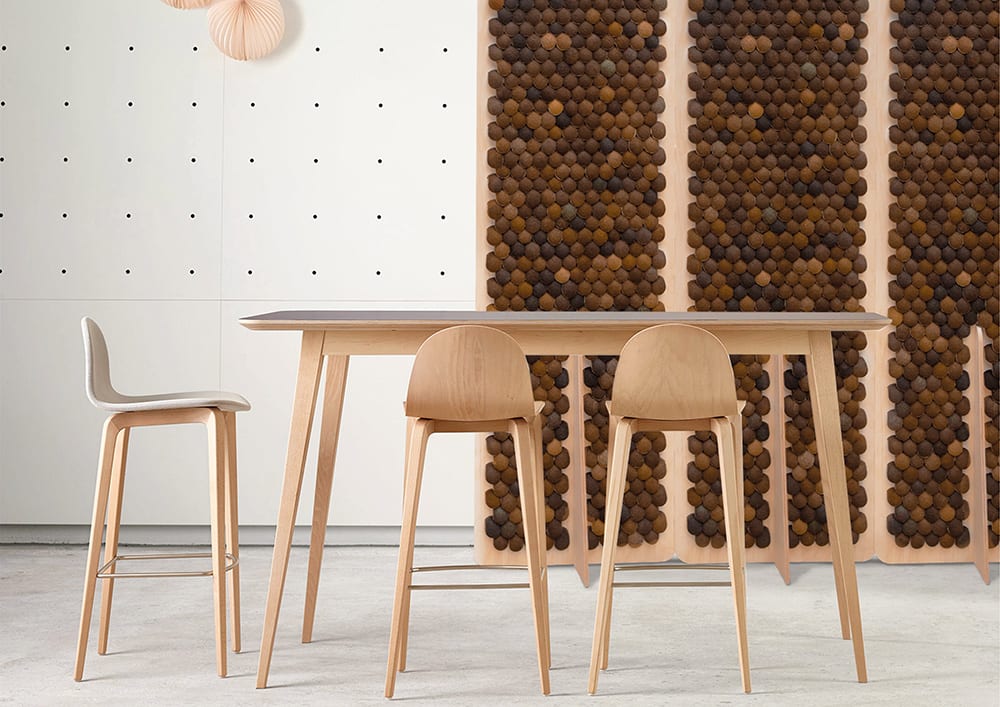
Mathilde Wittock, BA Product and Industrial Design
-
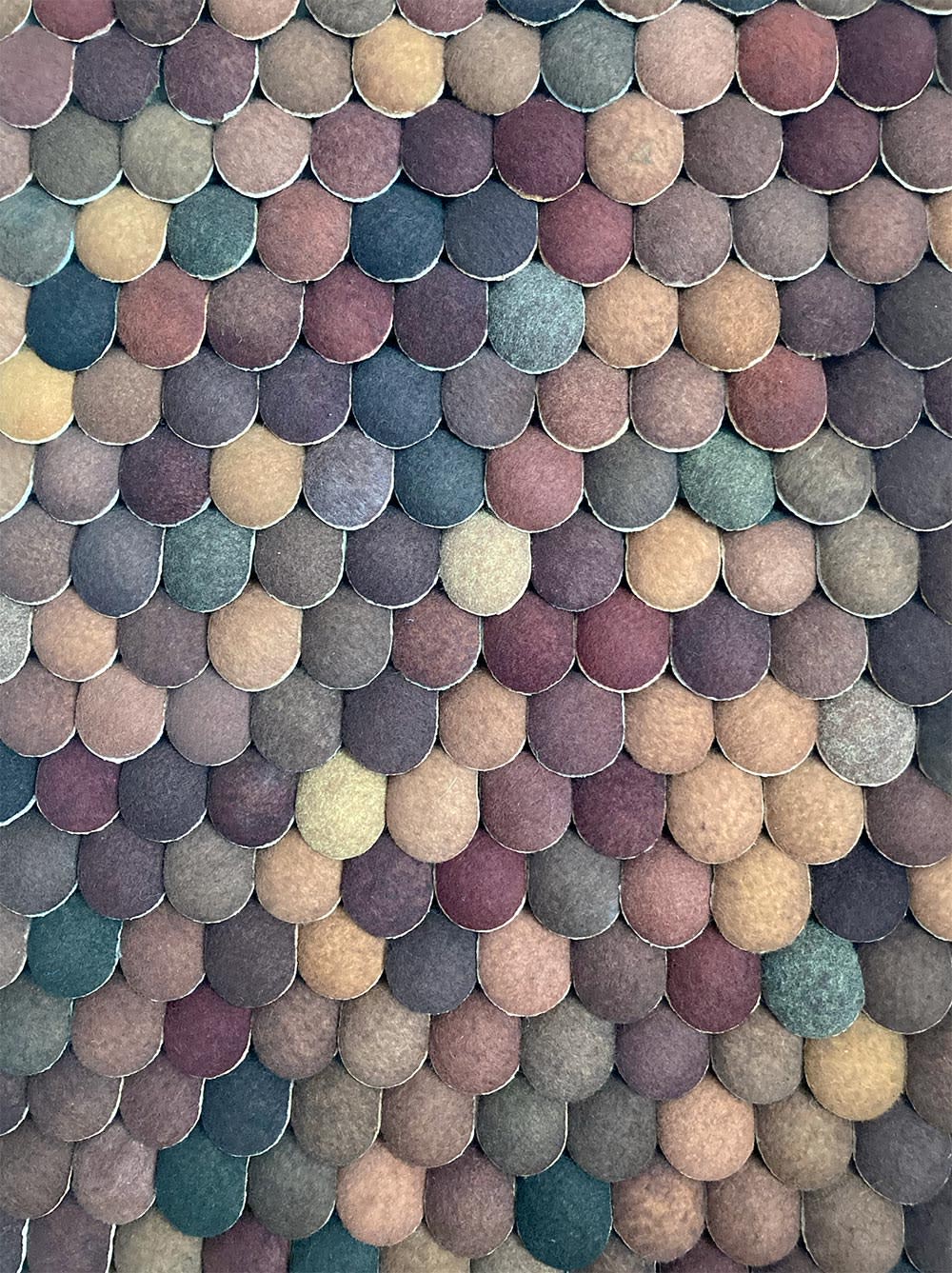
Mathilde Wittock, BA Product and Industrial Design
Mathilde continued to develop her work on a brief with Opendesk – an open access online platform that facilitates local production of plywood furniture. She wanted to integrate a circular economy aspect into the client's work: “Even though their focus on using only one material makes plywood furniture production possible worldwide, it limits Opendesk to virgin plywood, negating the need to preserve natural resources. This is where I realised the second opportunity to minimise their dependence on virgin plywood by introducing readily available tennis balls.” The result is Soundbounce, a divider to create modular spaces in work environments.
-
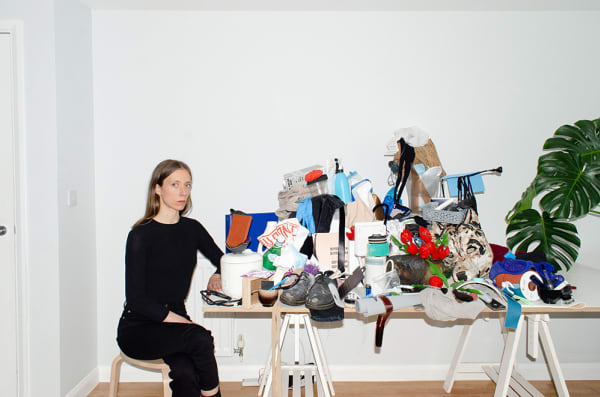
Rūta Irbīte, MA Material Futures


